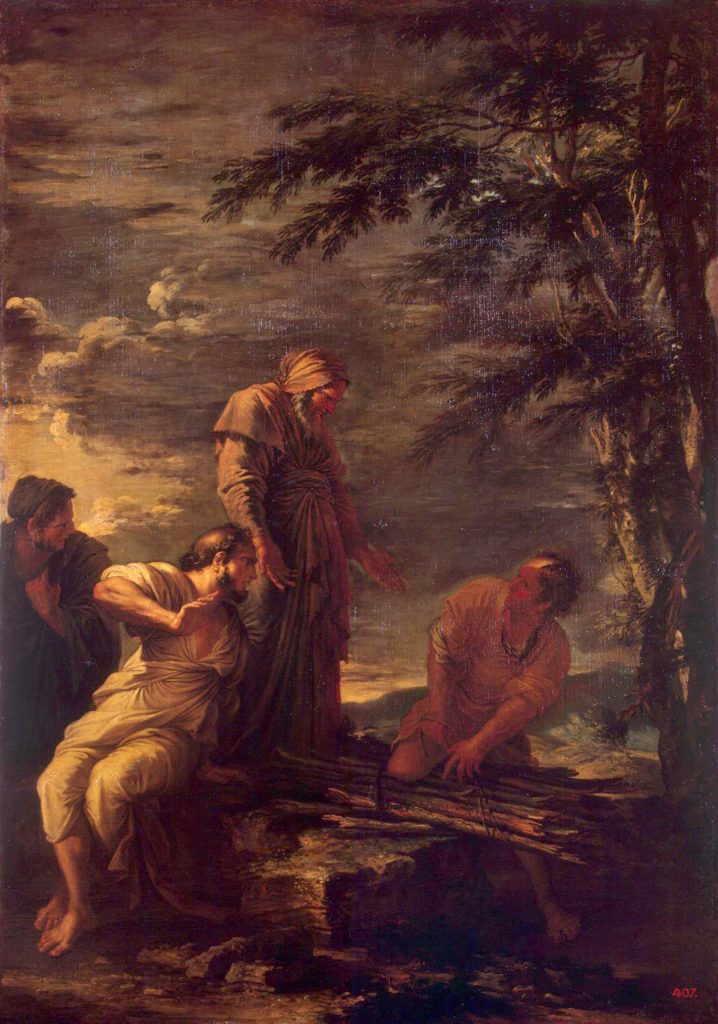Derrick Theriot

Protagoras was an influential pre-Socratic philosopher and sophist who lived 485–415 BCE. He was educated by Democritus, who had found him as a simple porter and thought that he showed potential by how his wood bundles were tied. Little of his work remains, and the small fragments that survived can mean different things depending on how you interpret them, but his doctrines were significant enough that many would document him. He was a controversial figure in Greece and would be both criticized and praised by later Greek thinkers.
As a sophist, and a highly paid one at that, he taught many of the young upper class of Athens in rhetoric. Since Athens was a city where lawsuits were common, Protagoras would make most of his money teaching rhetoric as a tool in the courtroom. Ultimately, his teachings of rhetoric would transcend litigation and enter the public square. According to Diogenes Laertius, Protagoras holds responsibility for the inception of competitive debates.
As well as being a highly regarded sophist, Protagoras also held some form of political influence in Athens. He was a friend and advisor to Pericles, a Greek politician and general during Athens’ golden age. Protagoras was even appointed by Pericles to write the legal code for Thurii, an important new Greek colony at the time.
Late in his life, he was expelled by the Athenians, who had collected his books and burnt them because of what he said about the gods. While this does explain why most of his work didn’t survive, this event is only noted by Diogenes and is not mentioned by anyone else at the time. Protagoras would later take a voyage to the Greek colony of Sicily. During this voyage his ship went down, and he drowned.
“Man Is the Measure of All Things”
Protagoras’ most famous claim was, “Of all things the measure is man, of the things that are, that they are, and of the things they are not, that they are not.” Many, including Plato, understood this to mean that truth is relative—that if truth is a matter of everyone’s opinion, then the objective truth only exists in the mind of the individual.
While complete relativism is what is interpreted from this quote, it is possible that Protagoras meant something different. This quote is only a simple fragment of his work and does not completely illustrate what he meant. What he could have meant was that although objective truth exists, people will understand it differently. Because an individual’s view of reality is based on their experiences, knowledge, and understanding of their surroundings; it is unrealistic that everyone will interpret something the same way.
Atheist?
Though Protagoras held sway in Athens, controversy would lead to his flight from the city. His most egregious statement for the Athenians was, “As to the gods, I have no means of knowing either that they exist or that they do not exist. For many are the obstacles that impede knowledge, both the obscurity of the question and the shortness of human life.” From this quote, one can ascertain that he thought there were no gods, or that he was only saying that based on his experiences, he couldn’t say whether the gods exist. What could have also been meant by that statement was that he didn’t have enough information to give an intelligent opinion.
Whatever meaning was closest to what Protagoras intended, it didn’t matter, because the Athenians charged him with impiety, which carried the death penalty. Diogenes writes that all copies of Protagoras’s books were burnt in the marketplace after Protagoras himself had read the quote from his book On the Gods. Even though he had the option to pay a fine to avoid prosecution, he chose instead to leave Athens before he could be brought to trial.
Plato’s Protagoras
Protagoras is a dialogue written by Plato in 380 BCE. In it, Socrates recounts a recent encounter with Protagoras to an unnamed friend. It is recalled that Protagoras asserts that virtue can be taught and that he can teach it. Socrates then questions him on what virtue is exactly. Throughout the dialogue, Socrates begins to reason, with the approval of Protagoras, that evil comes from a lack of knowledge. From this, he formulates that knowledge is virtue and that courage is a form of knowledge as well. At the start of the dialogue, Socrates and Protagoras are arguing from opposite positions, but end on agreeing on what virtue is before departing. The dialogue itself is very argumentative and critical of Protagoras; in fact, Plato uses it to invalidate Protagoras’ “Man Is the Measure of All Things” tenet. Plato uses Socrates to refute the tenet by arguing that if the truth is up to the individual, then that either means there is only opinion, or that everyone is wise, which makes men like Protagoras irrelevant.
Sources
- Hawhee, Debra. “Contesting Virtuosity: Agonism and the Production of Aretē.” Bodily Arts: Rhetoric and Athletics in Ancient Greece. University of Texas Press, 2004, pp. 15–43.
- Laërtius, Diogenes. Lives of the Eminent Philosophers. Loeb Classical Library, 1925.
- Mark, Joshua J. “Protagoras of Abdera: Of All Things Man Is the Measure.” World History Encyclopedia, World History Encyclopedia, 18 Jan. 2012, https://www.worldhistory.org/article/61/protagoras-of-abdera-of-all-things-man-is-the-meas/.
- Plato. “Protagoras.” The Internet Classics Archive: 441 Searchable Works of Classical Literature, Internet Classics Archive, http://classics.mit.edu/Plato/protagoras.html. Accessed 5 May 2022.
- Schiappa, Edward. Protagoras and Logos: A Study in Greek Philosophy and Rhetoric. University of South Carolina Press, 2003.
